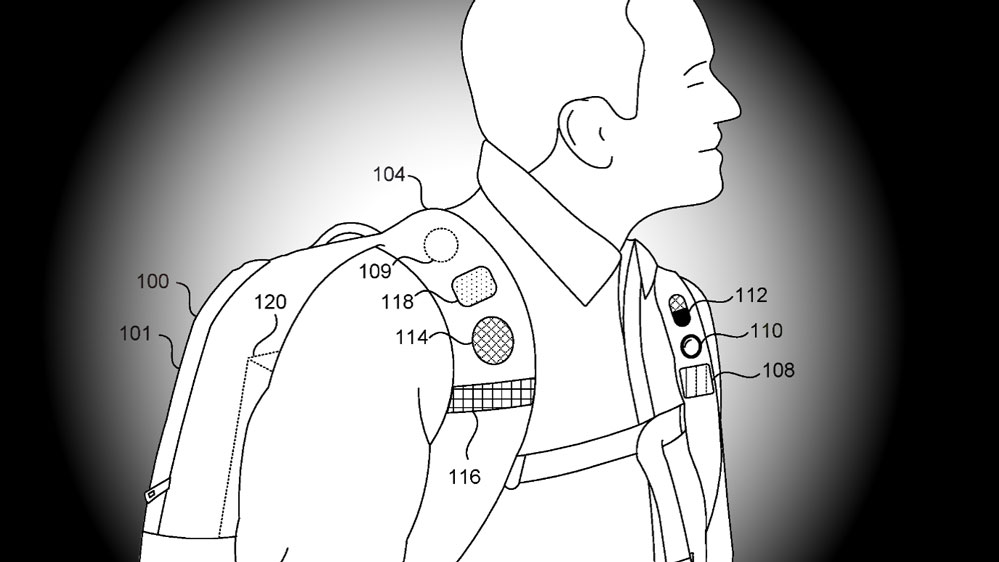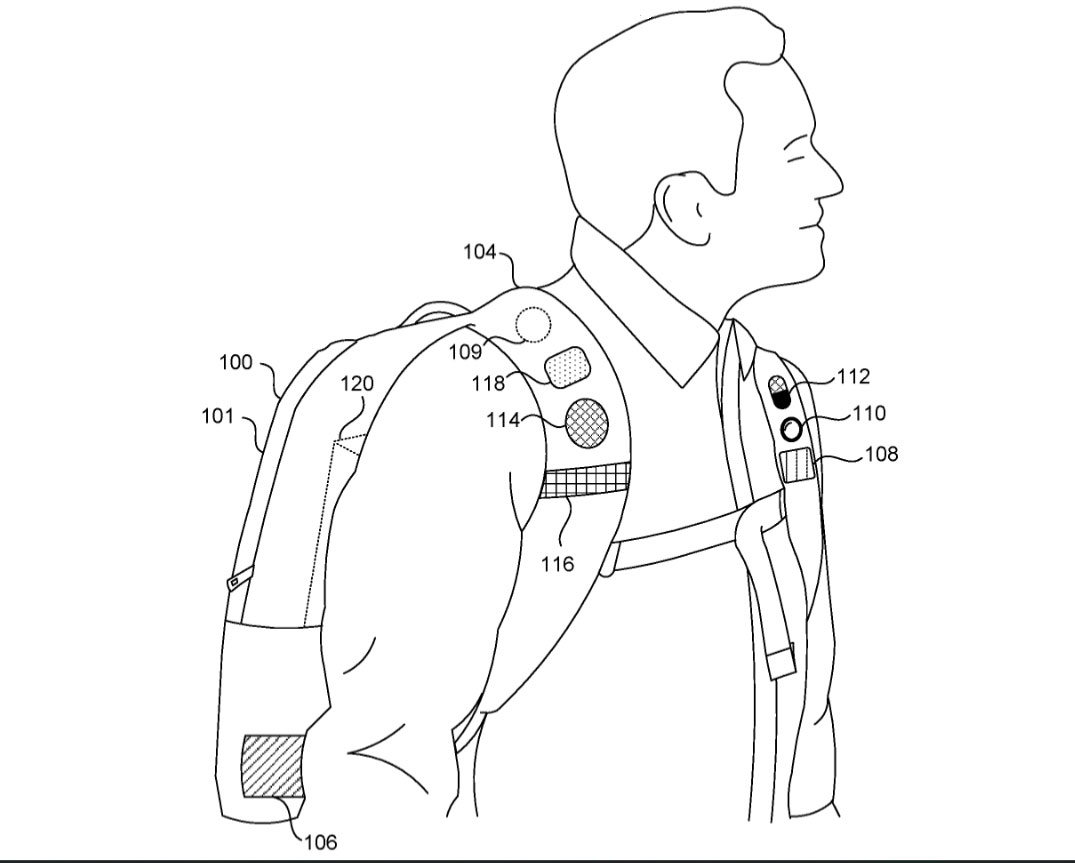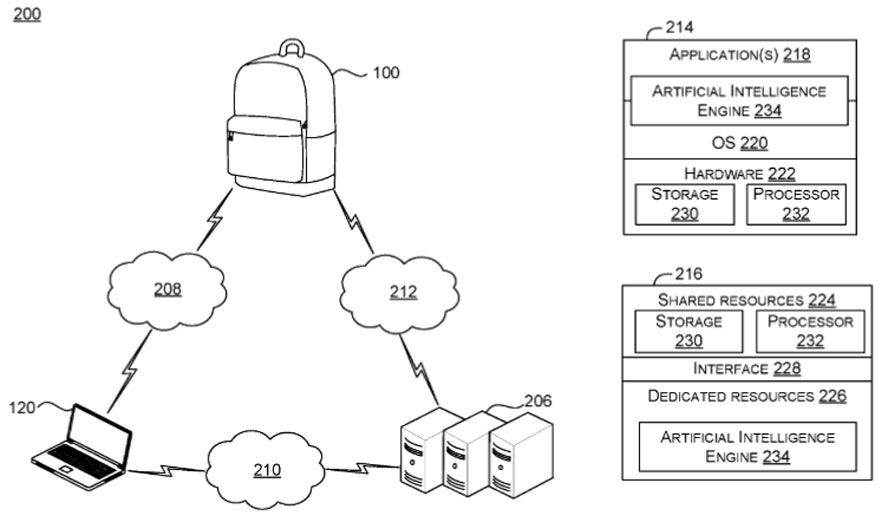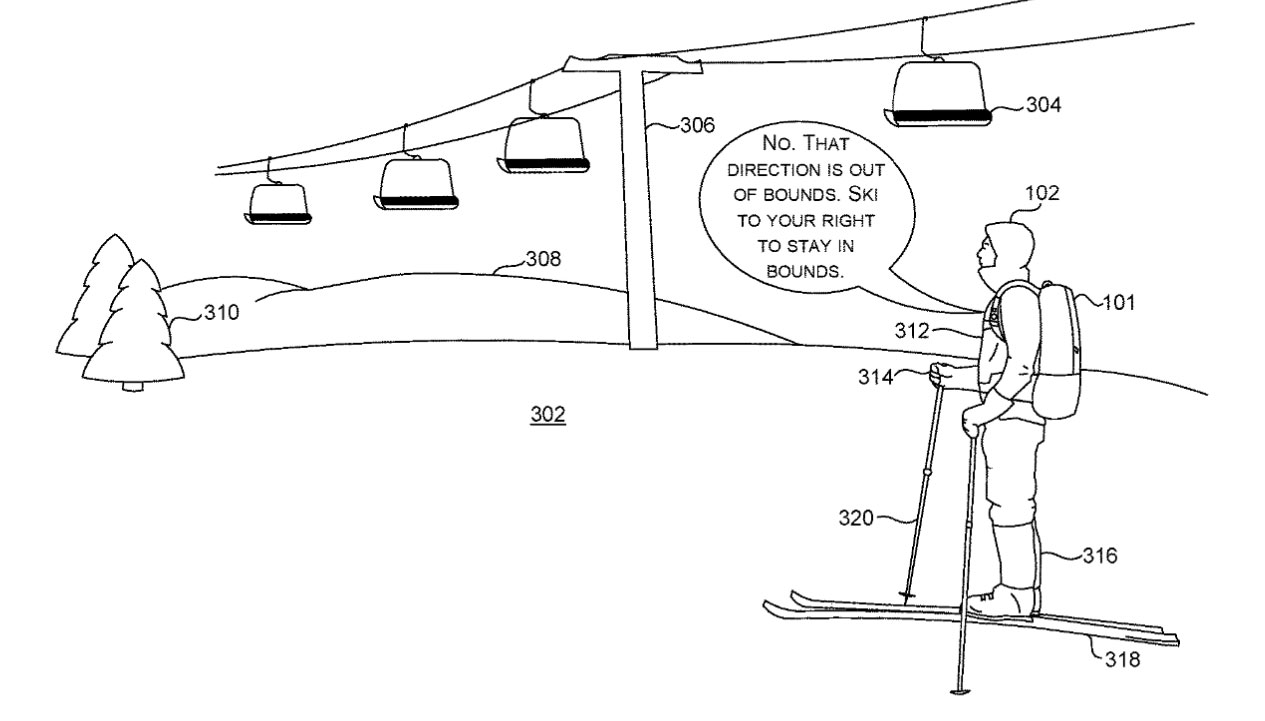Microsoft Patents Sensor-Filled, AI-Assisted Backpack
The firm has been investing big in AI recently, but this is still a peculiar product.

Microsoft has filed a patent for an AI-powered backpack design stuffed full of smart sensors. The U.S. Patent and Trademark Office (USPTO) has just cleared the application, which was filed back in May, so we can now get a clear view of Microsoft’s digital assistant-infused rucksack dreams (PDF), seemingly originally reported by MSPowerUser.
The patent is stated to be for “artificial intelligence-assisted wearables,” but the primary example, and the majority of the patent illustrations shows a backpack of nerdy delights. A key design feature of the smart baggage is the multitude of sensors in the arm straps. These face forward, like the wearer, and potentially include the following:
- cameras
- microphones
- GPS
- compass
Additionally, Microsoft thinks it may be useful to add in LEDs and speakers, as well as a haptic actuator, into the straps. Some real-time processing is deemed necessary to the smart wearable. Thus, various recognition modules are proposed to provide image, text, speech, facial, and cognitive recognition.
As well as real-time monitors feeding data to the built-in processing power for AI smarts, the system housed in the backpack also will boast a recording device (using on-board storage), wireless connectivity, battery power / charging and more.
With all the above sensing and processing on your person, in the backpack, it is envisioned that wearers will benefit from AI enhanced object identification and analysis, nearby device interaction, and be able to gain contextual insights.
A flow chart shows how the backpack and its data feed might work alongside personal computers and cloud servers. Other illustrations show the wandering backpack wearer navigating a ski resort, and checking out supermarket prices, as well as considering booking concert tickets.
Sometimes the user may interact with the backpack’s on-board AI via speech, e.g. “Hey Backpack, add this poster to my calendar.” Alternatively some AI actions or contextual tasks may be instigated by interacting with sensors on the straps.
Get Tom's Hardware's best news and in-depth reviews, straight to your inbox.
Microsoft’s patent mostly ponders over the usefulness of digital assistants outside the home, and this backpack assistant shows its direction of thought. PC processors are now starting to get dedicated AI acceleration hardware, and Microsoft has been quite busy integrating AI into its office productivity and collaborative tools.
In this context it is interesting that Microsoft abandoned its own Windows Mobile platform several years ago, and the Microsoft Cortana app is due to drop from support before the end of 2023.
We have covered the melding of tech and backpacks previously. Several VR backpacks have been reported upon over the last few years. Earlier today we noted Zotac has just launched its 4th Gen VR backpack. For makers and hobbyists the Raspberry Pi packing backpacks might hold more appeal. As for Microsoft’s AI backpack, perhaps it will never come to fruition, as many patents fall by the wayside due to expected lack of market appeal or other drawbacks that become apparent during development.

Mark Tyson is a news editor at Tom's Hardware. He enjoys covering the full breadth of PC tech; from business and semiconductor design to products approaching the edge of reason.


